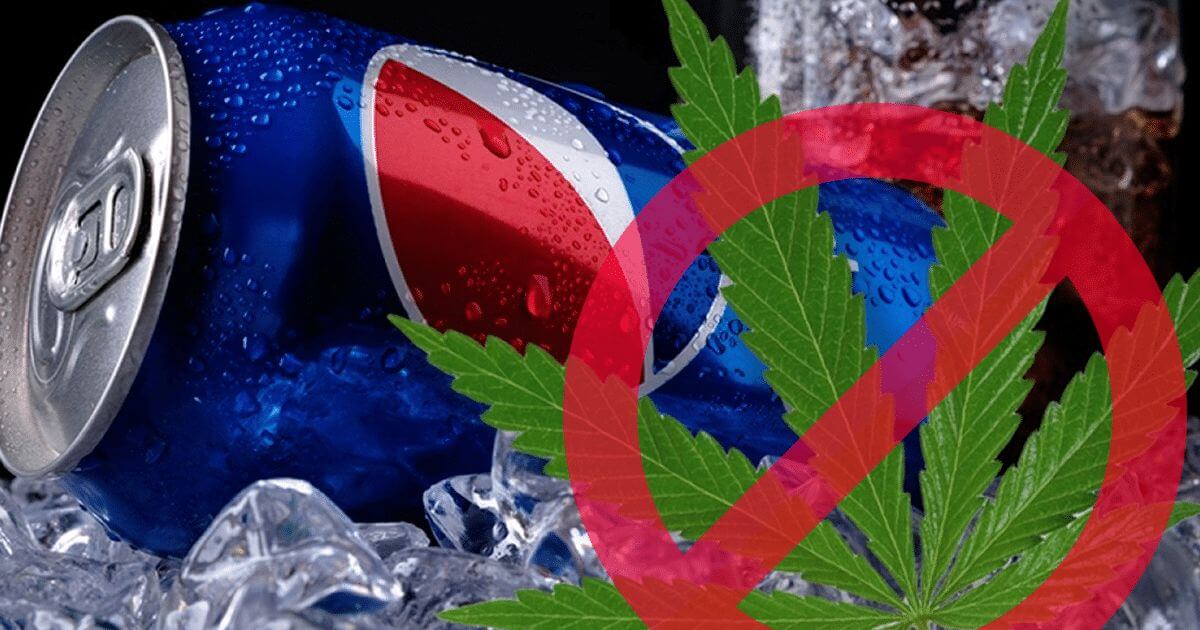Major food and beverage companies like Pepsi, General Mills, and Kellogg are asking Congress to prevent the creation, sale, and distribution of marijuana-infused copycat products that mimic their well-known brands. These companies claim that these products pose a health risk to the general public despite loading products with sugar, additives, and other provably dangerous and addictive chemicals. Is cannabis really the problem here, or are they after something else?
The Letter To Congress
On Wednesday, May 4th, 2022, more than a dozen companies and industry trade associations wrote in a letter to Congress claiming that allegedly misleading packaging of cannabis products poses a public safety risk, particularly for children.
“Children are increasingly threatened by the unscrupulous use of famous brand logos, characters, trademarks, and trade dress on THC-laced edible products,” the letter says. “While cannabis (and incidental amounts of THC) may be legal in some states, the use of these famous marks, clearly without approval of the brand owners, on food products has created serious health and safety risks for consumers, particularly children, who cannot tell the difference between these brands’ true products and copycat THC products that leverage the brand’s fame for profit,” it continues to allege.
The companies are currently encouraging Congress to expand their definition of counterfeit products to penalize companies selling cannabis-infused food items that mimic their popular branding.
Signatories of the letter to Congress on this issue include the Kellogg Company, PepsiCo, General Mills, American Bakers Association, Digital Citizens Alliance, Mondelēz International, American Herbal Products Association, Association for Dressings & Sauces, and more.
The letter to Congress claims that changing the language would close a loophole in federal legislation to address a “critical health and safety issue.”
The Alleged “Dangers” Of Copycat Products
For years now, news reports have embarked on fear-mongering campaigns, warning parents across the country about nefariously marketed edibles that could potentially confuse and intoxicate children. Despite these claims being totally unfounded, (and underage use of cannabis dropping in legal states), these major players are pushing to regulate food-sale products that make up only 8% of edibles sold nationwide.
Enjoying this story? Be sure to check out our blog on the current state of cannabis policy nationwide.
The Proposed Law And Its Potential Consequences
The law proposed to combat the sale of these edibles would ban the sale of products that replicate the branding, not just the name. This means that stoner puns or parodied images could become illegal in the near future. This would not only affect cannabis distributors and retailers, but other food companies who produce generic products intended to mimic, but not replace, their more expensive and famous counterparts.
These food and beverage monoliths are playing concerned parents and lawmakers for the fool. If health was at all a concern, the sale of foods made with synthetic ingredients, dangerous (and addictive) amounts of sugar and salt, or purposefully misleading health claims would be banned from advertising and packaging. Unfortunately, it seems like these companies are only interested in protecting their brand image, and in turn, defending their profits and monopolies.
PepsiCo, one of the signatories of the letter to congress, owns over 23 individual brands within the food and beverage industry. If this law were to be amended in the manner requested by the letter, PepsiCo would not only have a monopoly on the food and beverage industry, but would also own the rights to the imaging, branding, color palette, and anything else that they believe makes their products “distinct.”
No one wants their children to be hurt, least of all cannabis retailers marketing their products specifically to adults. However, the changing of counterfeit laws to include parody products or famous marks would have dramatic consequences not only for the cannabis industry but for food and beverage as a whole across the country.
Parents who want to protect their children from accidentally ingesting their cannabis products should take care to educate their kids on the packaging and how to distinguish adult snacks from family-friendly snacks. If your kids are old enough to have a discussion, they’re old enough to understand that some things are just for mom and dad. If they aren’t, ensure that your cannabis products are kept out of reach and away from your kids.
Enjoyed that first hit? Come chill with us every week at the Friday Sesh for a freshly packed bowl of the week’s best cannabis news!
- Maryland Leads the Way in Cannabis Pardons, Setting an Example for Much-Needed Cannabis Reform
- Military Construction and Veterans Affairs Bill Amendments Could Change Medical Marijuana and MDMA-Assisted Therapy Options for Veterans
- Thailand’s U-Turn on Recreational Cannabis Use
- Chicago Police Department Revises Policy on Searches Based Solely on Marijuana Odor
- Ohio’s Senate Bill 56 Postponed, Leaving Details of Issue 2 Still Unresolved
- Sports Stars and Well Known Entertainers Join Forces Calling on Trump for Cannabis Reform














